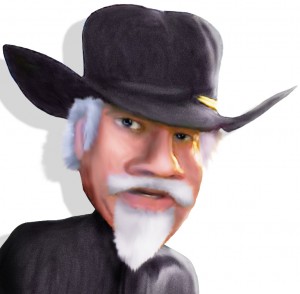April 1, 2021
Just Saying…
 By Q.C. Jones
By Q.C. Jones
Not Fooling, This is about Authors, Kind Of…
Most people do not realize it, fewer still celebrate the date, but April marks the birthday of an author who no doubt left a major impact on my life, your life, and the lives of nearly every American.
Born into the humble household of a father with only an elementary school education and an illiterate washerwoman mother, his childhood home was a small town lying just outside of Copenhagen Denmark. Following his father’s death, he was sent to a school for poor children where he learned just the basics of reading and writing, all the while supporting himself by working as a weaver’s and later a tailor’s apprentice. Later an adult acquaintance recognized a special spark in this young man and sent him to grammar school in hopes of bettering his education a notch or two. The whole thing sounds a bit like something out of one of your pal QC Jones’ favorite Horatio Alger novels.
Allow me to digress to the topic of another favorite author, Horatio Alger. At the age of 8 or 9, an elderly friend gifted me a collection of decades old Horatio Alger books. This little collection of a dozen or so cheaply made, and sadly decaying boy’s books from the 1880’s touched and inspired me. At first, I was intrigued by the age of the books, each page brittle yet fully intact. For some unknown reason, I selected Ragged Dick (Street Life in New York with Bootblacks). I was hooked. Later I wrote a paper on the American values as seen through the eyes of Alger and me. While Horatio Alger was well read, published close to 100 books, and was a sensation, he came nowhere close to our celebrated friend.
The author we are referring to is the eighth most-translated writer in the world, trailing right behind Vladimir Lenin and acing out Stephen King who is listed at number nine. His works have been published in more than 125 languages. Like Lenin, not all the works have been good translations, but they continue to sell like hotcakes. For all of you wondering the top-three authors are: Agatha Christie, Jules Verne, and Billy Shakespeare. Mark Twain, who happened to have died 111 years ago this April 21st, came in 16th. So, our guy is not only a household name in the Quad-Cities, but also world renowned.
Along the way, many of these literary works have been reproduced on stage, screen, and in animation. As a matter of fact, the first play I recall attending was an adaption of his work.
A few weeks ago, I watched an animated version of work with my grandson. With one exception, I still prefer reading his work the most. The exception: The Fractured Fairy-Tales renditions produced for the Rocky and Bullwinkle.
Truthfully, I took a 12-minute break from the arduous chore of writing this episode to re-watch Rocky and Bullwinkle season one, episode nine. After 60 years of living and entertainment, I still laughed out loud as I planned the exciting conclusion to this story.
Ok, by now you know, the author was from Denmark, wrote fair tails, and unwittingly provided the story line for a kid’s cartoon a century after his passing. If you guess the Grimm Brothers you were in the neighborhood, but they were really brothers (as in two), and they came from Germany. Now summon up a mental drum roll. Hans Christian Anderson was born on April 2, 1805. Join me in celebrating his life by pulling out some dusty copy of one of his many fairy tales and channeling back to your very first exposure.
April is full of surprises. Reconnecting with Hans came to me in a strange and indirect way. I have a German friend named Hans who recently celebrated his birthday. While thinking about Hans, I remembered one of his friends, a guy named Anderson. It was a collision of two unfocused thoughts. Without good reason to do so, I decided to “Google” Hans Christian Anderson.
This unfocused thought is something covered in a book by another author I admire named David Gelernter, who is a noted computer scientist, author, and artist. However, he is also one of the victims of Ted Kaczynski, the Unabomber (it was his standing as a computer expert). His book, The Muse in the Machine, starts off as a study of computerized intelligence (AI) – the stuff some fear will lead to the demise of humanity and the dawning of the age of robots – and ends talking about the subconscious mind and the power of unfocused thought.
Maybe someday we will delve into Gelernter’s thoughts. But in the meantime, I double dare some robot reading this to go me mano-et-mano in an unfocused thought contest. Just saying…


